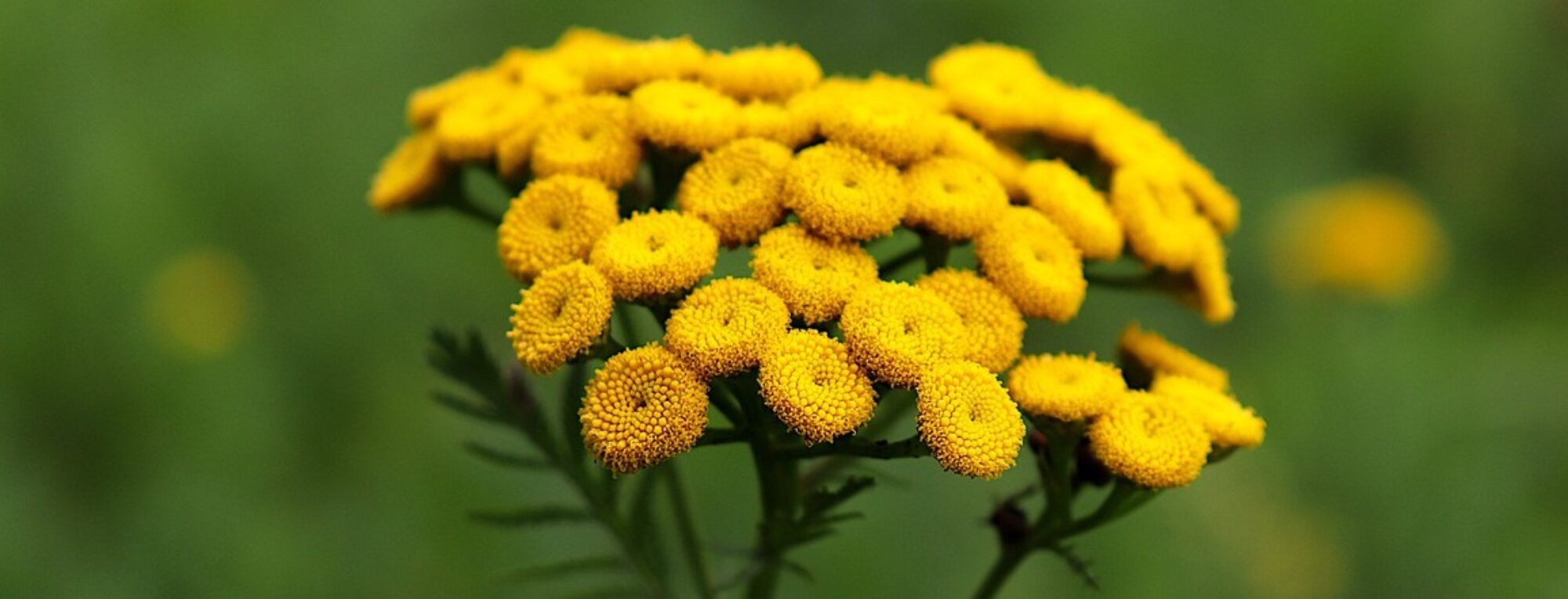
English name: Sweet fennel
Family: Apiaceae
Botanical characteristic: A perennial herb that grows to a height of 2 m. The root is fleshy, the leaves are thread-like. The yellow flowers grow in circumferential inflorescences. The fruit is a double-skinned plant, 10 mm in size. It flowers from July to September.
Microscopic drawing:


Distribution: Native to southern Europe, it is found in France, Italy, India and Japan. It is cultivated in Central Europe.
Drug: Foeniculi fructus
Harvesting method: The fruits are harvested two to three times during the growing season. First, the ripe flowers are picked with secateurs. Then the harvesting is done mechanically with a thresher.
Drying: The fruits are dried naturally on tarpaulins or sacks as they decompose. They are dried artificially in ovens at temperatures of up to 35 °C.
Active substances: Fennel is one of the stronghold plants, which are characterised by their distinctive scent. The essential oil is composed of trans-anethole, fenchone, estragole (synonymously referred to as methylchavicol), para-anisaldehyde, pinene and limonene. Storage substances such as carbohydrates, oil and proteins are also found in the seeds.
Uses: Fennel essential oil promotes expectoration, but is more often applied as a remedy with antispasmodic effects for spasms of the gastrointestinal tract and excessive flatulence. The whole plant stimulates increased production of breast milk, so it is used during lactation. It also promotes digestion and has an antibacterial effect. Fennel fruits are also used in the kitchen as a spice and in the production of liqueurs.
Traditional method of use in indications determined solely on the basis of long-term use:
- – symptomatic treatment of mild gastrointestinal spasms, bloating and flatulence,
- – symptomatic treatment of menstrual cramps,
- – expectorant – to promote expectoration, especially for coughs associated with colds.
Selected herbal preparations: AGROKARPATY FENNEL herbal tea 20×2 g, APOTHEKE BIO CHILDREN’S HERBAL TEA BRONCHI funnel bags 20×1,5 g, BabyCalm drops (for happy tummies) 15 ml, CARBOFIT Plus cps 60 pcs, GENERICA SymbioLac syrup 100 ml.
